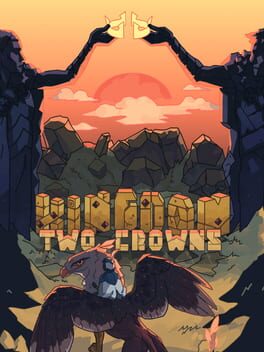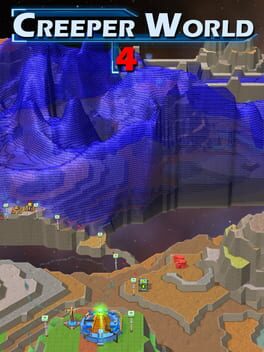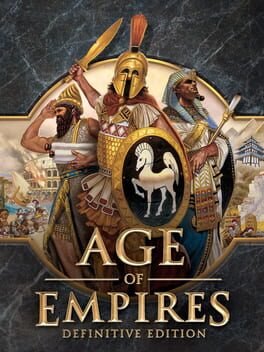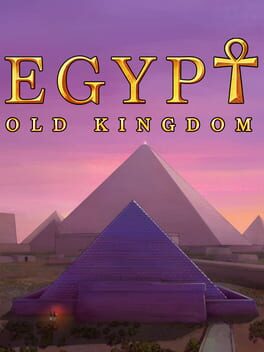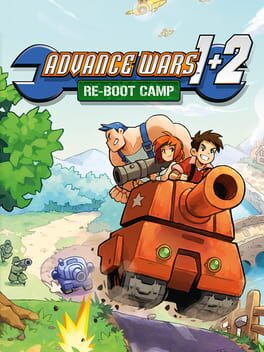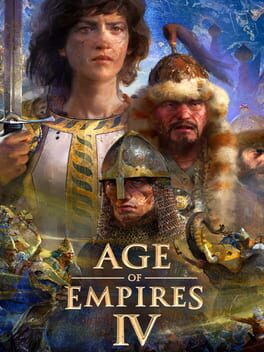valran
2018
This game offers both a masterpiece and, simultaneously, the most mundane experience.
Kingdom: Two Crowns is enigmatic, providing no clues about what you should do or how to do it. However, this ambiguity is one of the game's most attractive features. The slow start allows players to appreciate the stunning background and the beautifully rendered water, arguably the best representation of water I've seen in a game. Watching it becomes a reflective, meditative experience.
Since the game lacks a traditional menu and offers no guidance, you learn its mechanics through trial and error. This approach initially adds a sense of mystery and allure. However, once the gameplay is understood, some of that mystery dissipates. The game then transitions into a more strategy-focused and resource management experience, moving away from its personal and meditative beginnings. This second phase is equally engaging, retaining the game's beauty and mystique. By this point, you’ve developed a dislike for the 'greedlings' and are motivated to combat them.
Admittedly, the game can become repetitive after several hours, but this isn't a significant drawback. The initial hours are breathtaking, making 'Kingdom: Two Crowns' well worth playing.
Kingdom: Two Crowns is enigmatic, providing no clues about what you should do or how to do it. However, this ambiguity is one of the game's most attractive features. The slow start allows players to appreciate the stunning background and the beautifully rendered water, arguably the best representation of water I've seen in a game. Watching it becomes a reflective, meditative experience.
Since the game lacks a traditional menu and offers no guidance, you learn its mechanics through trial and error. This approach initially adds a sense of mystery and allure. However, once the gameplay is understood, some of that mystery dissipates. The game then transitions into a more strategy-focused and resource management experience, moving away from its personal and meditative beginnings. This second phase is equally engaging, retaining the game's beauty and mystique. By this point, you’ve developed a dislike for the 'greedlings' and are motivated to combat them.
Admittedly, the game can become repetitive after several hours, but this isn't a significant drawback. The initial hours are breathtaking, making 'Kingdom: Two Crowns' well worth playing.
2020
The game opts for basic, functional graphics over aesthetic beauty. Its story mode is well-balanced in terms of challenge and length, with a satisfying progression and new tools and weapons introduced steadily. This installment successfully combines elements from previous games in the series with new features, including a notable addition of a 3D environment.
One of the main issues that I had with the game is that is easy to trivialize
- I mean, if you are methodical enough, sooner or later victory becomes unavoidable because once you cover the terrain with weapons enough in number and variety, it's impossible for the enemy to penetrate that zone. That renders the game a repetitive experience for some levels. However, the continuous addition of new tools and mechanics makes it interesting enough, although most of them are only needed in the latter levels of the campaign.
Creeper World 4 appeals to both series fans and new players, thanks to its mix of traditional and innovative gameplay aspects.
One of the main issues that I had with the game is that is easy to trivialize
- I mean, if you are methodical enough, sooner or later victory becomes unavoidable because once you cover the terrain with weapons enough in number and variety, it's impossible for the enemy to penetrate that zone. That renders the game a repetitive experience for some levels. However, the continuous addition of new tools and mechanics makes it interesting enough, although most of them are only needed in the latter levels of the campaign.
Creeper World 4 appeals to both series fans and new players, thanks to its mix of traditional and innovative gameplay aspects.
What a strange thing we have here - developers wanted to keep the original experience. Still, they made some minor (and not-so-minor) changes to the gameplay to make it playable nowadays. The graphics overhaul is neat, and the soundtrack sounds better than ever.
But that didn't work. The stuff they didn't change is too annoying (that pathfinding was criminal in the 90s, now it is genocide) and what they did change modifies the original experience, so it doesn't feel the same.
Still, the original game was great... for its age. If you, like me, enjoyed AOE when you were a little kid and have strong feelings for it, this remake is a good chance to revisit those memories, and you'll be able to pardon all its defects.
But if you're looking for some RTS game with modern standards, you'd be better off looking elsewhere.
But that didn't work. The stuff they didn't change is too annoying (that pathfinding was criminal in the 90s, now it is genocide) and what they did change modifies the original experience, so it doesn't feel the same.
Still, the original game was great... for its age. If you, like me, enjoyed AOE when you were a little kid and have strong feelings for it, this remake is a good chance to revisit those memories, and you'll be able to pardon all its defects.
But if you're looking for some RTS game with modern standards, you'd be better off looking elsewhere.
2018
Egypt: Old Kingdom is a strategy game reminiscent of the Civilization series but with a more straightforward approach. Its simpler gameplay mechanics make it accessible, but once you scratch the surface you'll see that it doesn't have that depth.
While it lacks the complexity of Civilization, this game shines in its educational value. It offers an interesting journey through the most relevant ancient Egypt events, making it a treasure trove for enthusiasts of Egyptology and ancient history. The historical authenticity in portraying the era adds an immersive educational layer.
The unbalanced mechanics can lead to a repetitive and less challenging experience. It's easy to discover how to exploit the game and gather an absurd amount of resources, making the challenges trivial and non-interesting. Also, the user interface can be confusing from time to time, and it's hard to know what the outcome of some of your actions will be.
It's a great pick for those interested in ancient Egypt and those looking for a straightforward strategy, turn-based game. Despite its flaws, the game offers a unique blend of education and entertainment, and I would recommend it for a cheap price.
While it lacks the complexity of Civilization, this game shines in its educational value. It offers an interesting journey through the most relevant ancient Egypt events, making it a treasure trove for enthusiasts of Egyptology and ancient history. The historical authenticity in portraying the era adds an immersive educational layer.
The unbalanced mechanics can lead to a repetitive and less challenging experience. It's easy to discover how to exploit the game and gather an absurd amount of resources, making the challenges trivial and non-interesting. Also, the user interface can be confusing from time to time, and it's hard to know what the outcome of some of your actions will be.
It's a great pick for those interested in ancient Egypt and those looking for a straightforward strategy, turn-based game. Despite its flaws, the game offers a unique blend of education and entertainment, and I would recommend it for a cheap price.
2019
Do you remember when you were a kid and could play all evening with your friends under the sunny skies?
Do you remember when you could explore far lands like the park two streets away looking for hidden treasure?
Do you remember meeting a new pal, playing some silly games with them, and instantly becoming best friends?
Do you remember when you improvised a new game just from thin air with your friends?
Do you remember being a kid in the summer?
This game is that.
Do you remember when you could explore far lands like the park two streets away looking for hidden treasure?
Do you remember meeting a new pal, playing some silly games with them, and instantly becoming best friends?
Do you remember when you improvised a new game just from thin air with your friends?
Do you remember being a kid in the summer?
This game is that.
Advance Wars 1+2: Re-Boot Camp brings back the successful mechanics of the Game Boy Advance era, but its overall experience feels somewhat outdated. While the graphics have been improved, the gameplay remains unchanged, failing to keep up with industry advancements.
In my opinion, the new cartoonish design doesn't fit well with the wargame theme, and the plot lacks depth, following the clichéd formula of a villain's world conquest. For some reason, the mysterious aura and intriguing lore that the originals had are absent here.
The addictive gameplay and enigmatic qualities of the GBA games held a special allure, hinting at a deeper narrative beyond the game itself. Unfortunately, Re-Boot Camp fails to recapture that essence.
The game offers a nostalgic return to fans seeking a trip down memory lane, but fails to recapture the magic that made the original games so captivating.
In my opinion, the new cartoonish design doesn't fit well with the wargame theme, and the plot lacks depth, following the clichéd formula of a villain's world conquest. For some reason, the mysterious aura and intriguing lore that the originals had are absent here.
The addictive gameplay and enigmatic qualities of the GBA games held a special allure, hinting at a deeper narrative beyond the game itself. Unfortunately, Re-Boot Camp fails to recapture that essence.
The game offers a nostalgic return to fans seeking a trip down memory lane, but fails to recapture the magic that made the original games so captivating.
2021
